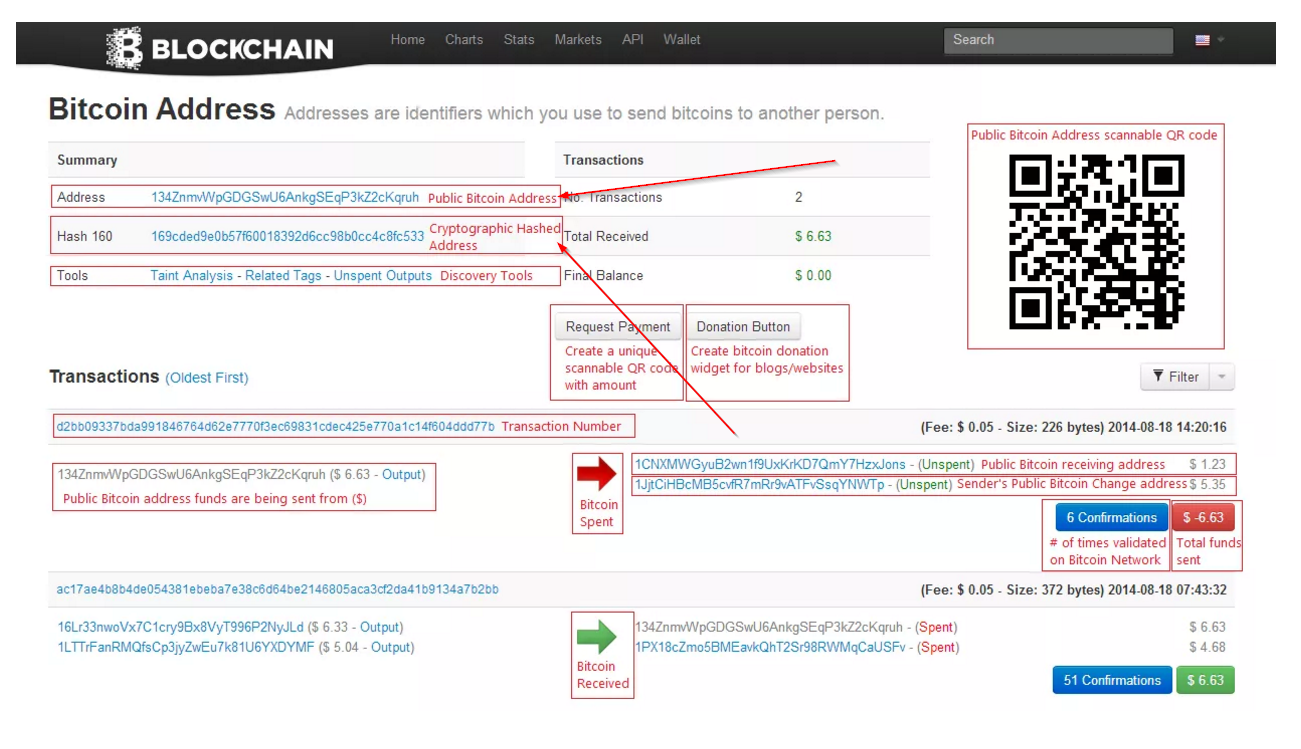What you refer to as 'Hash 160 Address' and which appear in this example under the field 'Hash 160' (e.g. the hex number a6c70c4a88205065c1d33b17c156137fa8c736c1) is a 20 bytes hash of the public key (specifically, it is the ripemd160 hash of the sha256 hash of the public key). These 20 bytes are essentially the same thing as what you call the 'Public Bitcoin address' (e.g. 1GCqcweZTwwe1w2RMWwwQMKSFgQzgFZQUb in our example). This bitcoin address is a 25 bytes number (usually displayed in Base58) which is linked to the hash 160 as follows:
address = [Version Byte (1)][Hash 160 (20)][Checksum (4)]
The version byte is simply 0x00 for the main bitcoin network and the 4 checksum bytes are simply the first 4 bytes of the double sha256 hash of the 21 bytes [Version Byte][Hash 160]
I attach a java snippet to illustrate some of the computations:
import org.bitcoinj.core.Address;
import org.bitcoinj.core.NetworkParameters;
import org.bitcoinj.core.Base58;
import org.bitcoinj.core.Sha256Hash;
import org.bitcoinj.params.MainNetParams;
class Test {
public static void main(String[] args)
{
String str = "1GCqcweZTwwe1w2RMWwwQMKSFgQzgFZQUb";
NetworkParameters main = MainNetParams.get();
// The string address is just a number expressed in base 58
// Let us parse this string and see the bytes of the underlying number
// 0:
// -90:-57:12:74:-120:32:80:101:-63:-45:59:23:-63:86:19:127:-88:-57:54:-63:
// -86:-114:24:124:
byte[] full = Base58.decode(str);
for(int i = 0; i < full.length; ++i){
System.out.print(full[i]+ ":");
}
// Let us compute the hash 160 of the address
//-90:-57:12:74:-120:32:80:101:-63:-45:59:23:-63:86:19:127:-88:-57:54:-63:
// These are the same 20 bytes as before
Address addr = Address.fromBase58(main, str);
System.out.print("\n");
byte[] hash = addr.getHash160();
for(int i = 0; i < hash.length; ++i){
System.out.print(hash[i]+ ":");
}
// Let us see the first 21 bytes of the address
// 0:-90:-57:12:74:-120:32:80:101:-63:-45:59:23:-63:86:19:127:-88:-57:54:-63:
byte[] decode = Base58.decodeChecked(str);
System.out.print("\n");
for(int i = 0; i < decode.length; ++i){
System.out.print(decode[i]+ ":");
}
// Let us compute the double sha256 hash of the first 21 bytes of the address
// and display the first 4 bytes: -86:-114:24:124:
// These first 4 bytes are exactly the last 4 bytes of the address above
byte[] check = Sha256Hash.hashTwice(decode);
System.out.print("\n");
for(int i = 0; i < 4; ++i){
System.out.print(check[i]+ ":");
}
}
}

